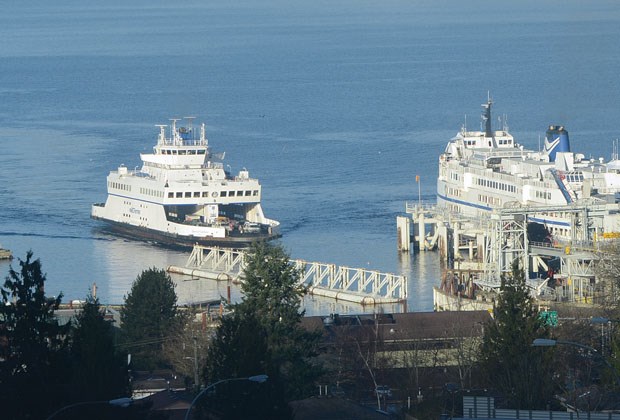The mayor of Bowen Island is warning the province that proposed ferry cutbacks spell serious economic hardship for his community.
“I think they’re slowly strangling Bowen Island,” said Mayor Jack Adelaar. “Young people are going to leave. They’re leaving now.”
Earlier this month, Adelaar wrote to B.C. Premier Christy Clark saying he was “deeply concerned” about the impact of proposed ferry cuts on the island community.
Seniors who live on the island, families with kids in Lower Mainland sports leagues and commuters who take the ferry to work will all feel the impacts, he said.
B.C. Ferries is proposing to cut the first two round trips between Bowen Island and Horseshoe Bay on Saturday and Sunday and the last round trip on Sunday night in order to save $270,000 on that route.
The cuts are among $14 million in service reductions proposed for minor ferry routes across the fleet, including routes from West Vancouver to both Bowen Island and the Sunshine Coast.
Adelaar said the early-morning cuts will affect people who live on the island and work in the Lower Mainland, including health-care workers. If the cuts go ahead, those people will have to try to get different shifts, or move off island, he said.
More than 150 people showed up to a public consultation in November to oppose the changes, which include reducing the seniors discount from free to 50 per cent of regular fare Monday to Thursday.
But Adelaar said in the past, the ferry corporation hasn’t paid any attention to public feedback. “It’s almost as if we’re talking to a brick wall,” he said.
According to B.C. Ferries, the Bowen Island route annually carries slightly more than half the cars it has capacity for and loses $7.07 million. The Langdale route between the Sunshine Coast and Horseshoe Bay — where the ferry corporation plans to cut the first round trip on Sunday morning — runs at 54 per cent car capacity and loses about $4.5 million annually, according to the corporation.
In his letter to the province, Adelaar said rising fares are driving people off the island. Property values on Bowen are falling, he added.
Ferry users have previously called on the province to put more money into the ferry system. But Transportation Minister Todd Stone has already said publicly that’s not going to happen. Taxpayers have already provided about $180 million to the ferry system this year, including an extra $85 million spread over several years to help reduce fares, he said.
The financially troubled ferry corporation has seen costs balloon since it became a quasi-private corporation more than a decade ago.
Ferry fares have risen between 130 per cent and 140 per cent in the past decade. Meanwhile, debt costs have tripled — now accounting for 28 per cent of all ferry expenses — fuel costs have more than doubled and labour costs are also up. Ferries brass has also warned the corporation will have to spend about $2.6 billion more over the next decade to buy new ferries and do terminal upgrades.
Adelaar said the burden of that is falling unfairly on ferry-dependent communities like his. Bowen Island residents are part of Metro Vancouver and pay gas taxes but don’t see any direct benefit of that, he said.
While Stone said recently the province does not consider the ferries part of the highways system, that’s how W.A.C. Bennett first set it up, said Adelaar.
“After you’ve built an economy based on an ability to get to Bowen Island, to say you’re going to cut that, it’s a little backwards to me.”
A group representing ferry advisory groups in several smaller ferry-dependent communities have said they would prefer to see cuts to the Tsawwassen to Duke Point schedule which primarily serves commercial vehicles and loses between $24 million and $30 million a year.
Friday is the last day for the public to make comments on the proposed service changes. Find information online at coastalferriesengagement.ca.



